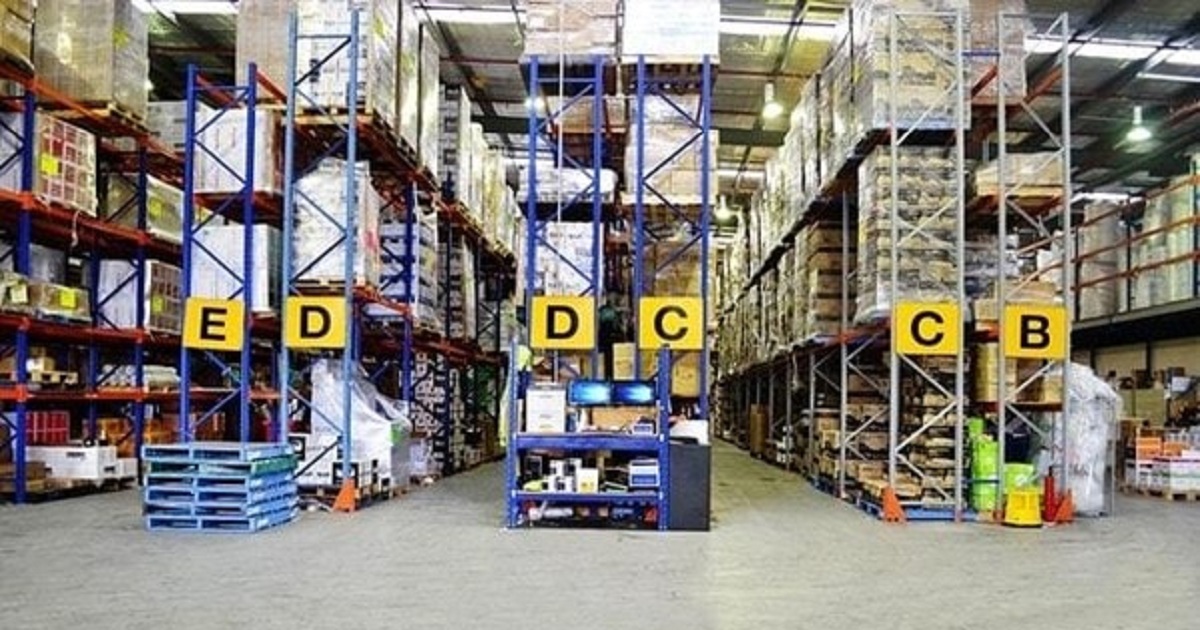
Supply Chain
Article | May 22, 2023
The logistics sector is experiencing a significant technological shift similar to that of all other industries due to the growing need for remote work solutions. Social networking, the Internet of Things (IoT), cloud-based logistics, and other technological advancements are reshaping the logistics industry and moving it in a new direction. Additionally, the supply chain and logistics as a whole are greatly influenced by factors like transportation and digital transformation.
Modern digital technology is fundamentally altering how various sectors function. Increased connectivity amongst the people has also increased the needs of customers, created new purchasing habits, and gave birth to an entirely new industry as a whole, e-commerce.
The Shift Towards the Could Technology
Over the past few years, the transportation and logistics industry has witnessed a shift towards digitization as more and more people have access to the internet and computer for day-to-day work.
From online grocery stores to local delivery apps and even on-demand airport shuttle services, the adoption of cloud technologies has given a viable solution to customers and businesses at a lower cost than before. As a growing number of businesses reevaluate their use of innovative technologies, cloud computing is becoming an increasingly serious and practical choice.
The cloud is of significant use in the world of freight transportation and logistics, as it stores crucial shipping information that can be accessed at any time via transportation management systems from anywhere. The technology is emerging as a game changer for the businesses operating in the logistics industry. Here is a list of benefits cloud technologies offer:
Logistical space planning
Real-time package updates
Leverage artificial intelligence (AI) and machine learning (ML)
Vehicle health monitoring
E-ticketing management
Final Thought
Cloud-based solutions have enormous potential to improve operational and financial efficiency in the transportation and logistics industry. Some facets of cloud-based solutions also have the ability to transform the overall shipping experience altogether. Assessing the merits of this technology, a large number of leading businesses are incorporating it for applications such as fleet-specific planning, shipment optimization, faster delivery, and others. In the coming years, cloud-based solutions are likely to become very popular in the supply chain industry as they keep getting better.
Read More

Warehousing and Distribution
Article | June 27, 2023
At Schneider Electric, meeting our customers’ expectations is a key priority. As concern over COVID-19 (Novel Coronavirus) grows, we are monitoring developments to this situation globally, as well as following local health and government regulations, continually assessing and responding to changes.
Our Business Continuity Plan (BCP) has been tested and implemented in geographies impacted. This plan includes health and safety, supply chain, lifecycle management services, and IT infrastructure.
Schneider Electric operations meet the criteria of an essential critical infrastructure as defined by most governments. While we do not anticipate interruptions to our operations, local governments may require temporary containment measures. In these cases, we comply with local laws, and in most cases seek support from local authorities to maintain critical business operations as an essential business for our communities.
Read More

Warehousing and Distribution
Article | July 11, 2023
The unsurprising investment eagerness of venture capital funds is manifesting in an automation tech glut in the distribution center space. Motivated by enabling trends like labor and land shortages, DCs are amid an automation transformation. Never has defining an automation strategy been more important.
There’s no shortage of VC cash available to logistics tech startups
With a brightly shining spotlight centered on supply chains for the past two years, it’s no surprise that total funding in logistics startups has seen a dramatic increase – growing at over 70% CAGR (Compound Annual Growth Rate). Logistics technology startups raked in over $25 billion in the first three quarters of 2021. That’s more than half of the total amount raised in the whole of 2020, and the incentives for continuing investment persist.
The rise of the of the “micro” DC
“Micro” is a relative term. The size of a micro fulfillment center (MFC) can range from 5,000 to 50,000 square feet. Those reduced square footages allow location in dense urban areas, typically within 40 miles of most of their intended customers. In addition, smaller footprints lead to reduced rents compared to a standard customer fulfillment center (CFC), and the proximity to consumers makes for lower final mile delivery costs. It’s no wonder that MFCs accounted for more than half of the logistics real estate leasing activity in the third quarter of 2021. The “urban logistics” trend is fueling demand for these highly automated, smaller locations.
Vertical logistics integration grows ever more fashionable among retailers
It’s a very “in” thing right now, these acquisitions and partnerships, and they won’t be going out of fashion soon. For example, American Eagle took in Airterra and its parcel optimization tech and third-party logistics (3PL) provider Quiet Logistics.
Target started early. They bought Grand Junction, a software platform that helps retailers determine the best delivery method and track carrier performance, in 2017. Their 2020 acquisition of Deliv brought with it same-day delivery routing technology that they’re now applying to their 2021 purchase, on-demand delivery service Shipt. Target uses Delivs’ tech to generate more efficient routes for Shipt.
Kroger has partnered with UK’s e-grocery specialist Ocado to build automated CFCs across the US and expand their retail footprint. The first CFC opened last spring in Ohio and their second in Florida later that year. They plan to open 20 CFCs over the next three years.
“The proliferation of DC automation solutions and modalities, the rise of MFCs in high-density urban areas, the increasingly automated vertical integration of logistics, and the need to rapidly expand order fulfillment capacity have all, in combination, advanced the need for and application of clearly defined strategies concerning the implementation of automation technology. Do not operate without one.”
Vikas Argod, Principal, Supply Chains Operations practice at Chainalytics
Coping with shortages in warehouse space and labor availability
Third quarter, 2021 US demand for industrial real estate exceeded supply by 41 million square feet. This pushed the national vacancy rate in the fourth quarter down to a record 3.7% in the Cushman & Wakefield US National Industrial MarketBeat report for Q4 2021. Who knows what the record might be when the Q1 2022 report breaks in a few weeks?
On the labor side, the December 2021 US unemployment rate was 3.9%, lower than in December 2019 (3.6%) yet reflecting a tighter labor market. Labor force participation rates are at 61.9%, nearly 2% below February 2020 levels, because of lingering effects of the COVID-19 pandemic. The rising wages and signing bonuses of the past year offer silent testimony to the ongoing constraints in today’s labor market.
Both trends will remain with us for the near- and mid-term, making an automation strategy a necessary part of your DC operations as you attempt to mitigate the effects of both. In addition, warehouse labor shortages are most pronounced in markets with high distribution center densities – Greater Memphis, In-land Empire, Allentown, PA, et al.)
Building the capability to rapidly open DCs at scale
No other factor drives home the need for a coherent DC automation strategy like this one. Let’s explore it with an example.
We’ll call this “A Tale of Two Companies.” One jumped on the automation bandwagon without hesitation – not a bad thing – but applied no strategic groundwork. The other is, well, Amazon.
Company one responded to increasing demand by creating DCs in their usual, strategically located fashion. However, with automation, the lack of a logical strategy led to adopting “the best that money could buy.” So, while these DCs work fine on their own (most of the time), each employs unique implementations from a variety of vendors, with little to no overlap of methods, capabilities, and management procedures between DCs. It’s functional, but a needlessly complicated hodgepodge.
On the other hand, it definitely looks like Amazon has a standardized automation strategy. One that can easily adapt to exploit the individual physical specifications of any space. This makes it simple to arrive and equip it with a standard package of automation solutions. That’s probably how Amazon blanketed the US with over 400 new DCs in just the last two years. They waste no time or money on repeating unnecessary decisions along the way.
Now, we all can’t have the resources of an Amazon. However, the rise of on-demand warehousing companies like Stord and Flexe allow organizations to dramatically decrease the cycle time of standing up additional fulfillment capability.
Developing an automation strategy will feel familiar. It begins with benchmarking, order profiling, current performance drivers, EBIT targets, and theoretical evaluations of newer technology options. All this leads to the creation of a decision framework for DC automation. The goal here is achieving alignment among the leadership on critical capabilities to focus on. These include rapid fulfillment, labor shortage, capacity constraints, safety challenges, or sustainability. Those that commit to this process will start slowly but finish with a strategy that will underpin thousands of decisions and enable sustained rapid growth.
If, in the end, you decide that automation is not right for your operation, that’s a perfectly valid strategy as well. So long as you have a method to evaluate all of your options, and you base your decision on cost-service-sustainability trade-offs, the right strategy for your organization may be no automation at all.
There’s no point in chasing shiny robotic objects if automation makes little sense.
The rise of automation and the multitude of technologies to choose from require the development of a strategic decision framework. Contact us and see how Chainalytics – an NTT DATA company – can be your guide in developing this critical part of your foundation for growth. Our top supply chain talent, enabled by proven, leading-edge digital assets – tools, methods, and content – deliver actionable insights and measurable outcomes to some of today’s largest and most complex supply chains.
Read More

Article | October 15, 2020
Labor costs, on an average, constitute more than 65% of the expenses for a warehouse. It is a best practice to review the operation of your warehouse before implementing automation, but it also has a significant impact on production and operational efficiency. The processes in a disarrayed warehouse cannot easily be automated as automation heavily relies on warehouse layout optimization, as well as standardized processes and procedures.
Read More